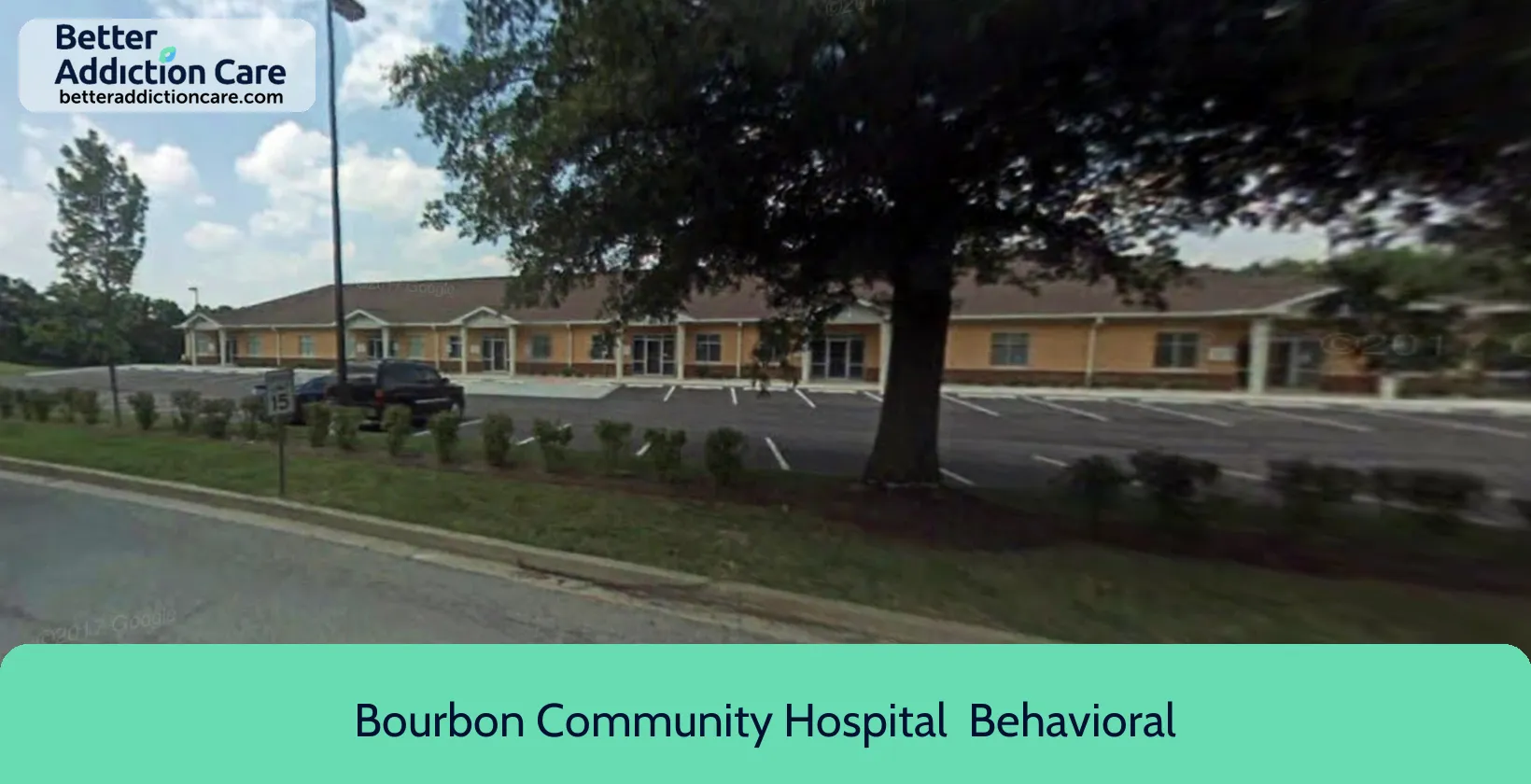Bourbon Community Hospital - Behavioral Health
Overview
Bourbon Community Hospital – Stoner Creek Behavioral Health Centre is a private rehab facility located in Paris, Kentucky. Specializing in dual diagnosis and mental health treatment, Bourbon Community Hospital provides a comprehensive range of services in a quiet, hometown atmosphere.
As a 58-bed acute care facility situated in the heart of the Bluegrass, Bourbon Community Hospital is equipped with the latest technology to ensure high-quality patient care. The hospital's medical staff consists of 140 physicians covering 22 specialties, demonstrating a broad spectrum of expertise and dedication to patient well-being. The patients at Bourbon Community Hospital are not just individuals seeking medical assistance; they are friends, neighbors, and family members within the community.
The Behavioral Health department at Bourbon Community Hospital features a 33-bed inpatient facility. The department utilizes a multi-disciplinary approach to mental health care, enlisting the services of psychiatrists, clinical psychologists, therapists, nurses, social workers, mental health technicians, recreation therapists, and Kentucky-certified teachers. This diverse team collaborates to provide tailored treatment plans that address the unique needs of each patient. Additionally, certified therapy dogs are incorporated into the healing process when applicable, offering comfort and support to patients during their recovery.
Bourbon Community Hospital is guided by its "High Five" principles, which reflect the hospital's commitment to excellence. These principles include delivering high-quality patient care, supporting physicians, creating excellent workplaces for employees, strengthening the hospital's role in the community, and ensuring fiscal responsibility. These guiding principles underpin every aspect of the hospital's operations and interactions with patients, staff, and the wider community.
The dedicated staff at Bourbon Community Hospital takes pride in the quality of care they provide. They work tirelessly to create an environment where patients feel supported and valued throughout their treatment journey. By focusing on both physical and mental health, Bourbon Community Hospital – Stoner Creek Behavioral Health Centre aims to foster holistic healing and long-term well-being for all individuals in their care.
Bourbon Community Hospital - Behavioral Health at a Glance
Payment Options
- Cash or self-payment
- Medicaid
- Medicare
- Private health insurance
- Federal military insurance (e.g., TRICARE)
Assessments
- Screening for tobacco use
- Comprehensive mental health assessment
- Comprehensive substance use assessment
- Outreach to persons in the community
- Screening for mental disorders
Age Groups
- Children/adolescents
- Young adults
- Adults
- Seniors
- Adolescents
Ancillary Services
- Education services
- Integrated primary care services
- Mental health services
Highlights About Bourbon Community Hospital - Behavioral Health
7.27/10
With an overall rating of 7.27/10, this facility has following balanced range of services. Alcohol Rehabilitation: 8.00/10, Drug Rehab and Detox: 7.23/10, Insurance and Payments: 6.53/10, Treatment Options: 7.33/10.-
Alcohol Rehabilitation 8.00
-
Treatment Options 7.33
-
Drug Rehab and Detox 7.23
-
Insurance and Payments 6.53
Accreditations
The Joint Commission:

The Joint Commission accreditation for addiction and behavioral health signifies that a facility has met rigorous standards in patient care, treatment, and safety. This recognition assures patients and professionals of the facility's commitment to providing high-quality, evidence-based care in the fields of addiction and behavioral health, fostering trust and confidence in their services.
Treatment At Bourbon Community Hospital - Behavioral Health
Treatment Conditions
- Alcoholism
- Mental health treatment
- Substance use treatment
- Co-occurring Disorders
- Opioid Treatement
Care Levels
- Hospital inpatient/24-hour hospital inpatient
- Hospital inpatient detoxification
- Hospital inpatient treatment
- Aftercare
Treatment Modalities
- Cognitive behavioral therapy
- Activity therapy
- Substance use disorder counseling
- Smoking/vaping/tobacco cessation counseling
- Group counseling
Ancillary Services
Languages
- Sign language services for the deaf and hard of hearing
Additional Services
- Pharmacotherapies administered during treatment
- Discharge Planning
- Breathalyzer or blood alcohol testing
Special Programs
- Clients with co-occurring mental and substance use disorders
Contact Information
Read our Most Recent Article About Drug Addiction
DISCLAIMER: The facility name, logo and brand are the property and registered trademarks of Bourbon Community Hospital - Behavioral Health, and are being used for identification and informational purposes only. Use of these names, logos and brands shall not imply endorsement. BetterAddictionCare.com is not affiliated with or sponsored by Bourbon Community Hospital - Behavioral Health.









